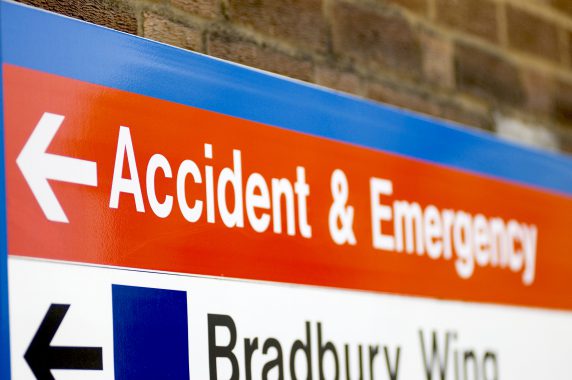Lack of GP services not reason for A&E pressure, shows major study

Patients are not flocking to A&E because they can’t get a GP appointment, but because they have long-term health conditions, researchers have found.
Appointment data from patients across east London debunks the myth that queues are caused by difficulty accessing a GP and suggested that GPs should not be used as ‘scapegoats’.
It comes after the Prime Minister was urged to apologise for blaming GPs for high numbers of patients visiting A&E last winter, and as NHS England mandated hospitals to set up a GP front-door ‘streaming’ service across all emergency departments this winter.
The study by Queen Mary University of London’s Centre for Primary Care and Public Health looked at two years of appointment data for 819,590 patients from 136 practices in Newham, Tower Hamlets and City and Hackney to explore why they went to A&E.
The study found that a fifth of patients visiting A&E had at least one long term condition and 2% had four or more. Deprivation also added to the effect, the study found.
In all, 30% of patients clocked up 505,868 visits to an emergency department, with three quarters of them going to a consultant-led major unit.
Of these, 15% were discharged to their GP for a follow-up appointment.
Lead researcher Dr Sally Hull said: ‘The pressures on emergency departments, especially during winter, are enormous. When departments are very busy, with long waits and difficulties finding beds for people needing admission, it is easy to seek scapegoats and suggest that poorly functioning GP services are to blame for the crisis.
‘Contrary to the popular narrative that people are using emergency departments rather than their GP surgery, our research shows that this is not the case,’ she said.
People who were frequent visitors to their A&E are also more likely to make more visits to their GP, while patients with low GP attendance also paid fewer visits to A&E.
‘The same people who attend their GP surgery a lot also attend their emergency department a lot. This is largely because they have multiple long term health conditions, both mental and physical, and it is these conditions, along with an ageing population, which are driving the high attendance rates,’ said Dr Hull.
The findings were welcomed by Dr Mark Sanford-Wood, the BMA GP Committee’s deputy chair.
He said: ‘In the past some politicians have sought to blame overcrowding in A&Es on general practice, so it is positive to see further evidence showing that this is not the case.
RCGP chair Professor Helen Stokes-Lampard said: ‘General practice makes the vast majority of patient contacts in the NHS and by doing so we alleviate pressures on emergency departments, we don’t add to them. This research backs this up with important new data.’
She said patients also needed better information about the different services on offer so they get help at the most appropriate place.
Pulse October survey
Take our July 2025 survey to potentially win £1.000 worth of tokens











